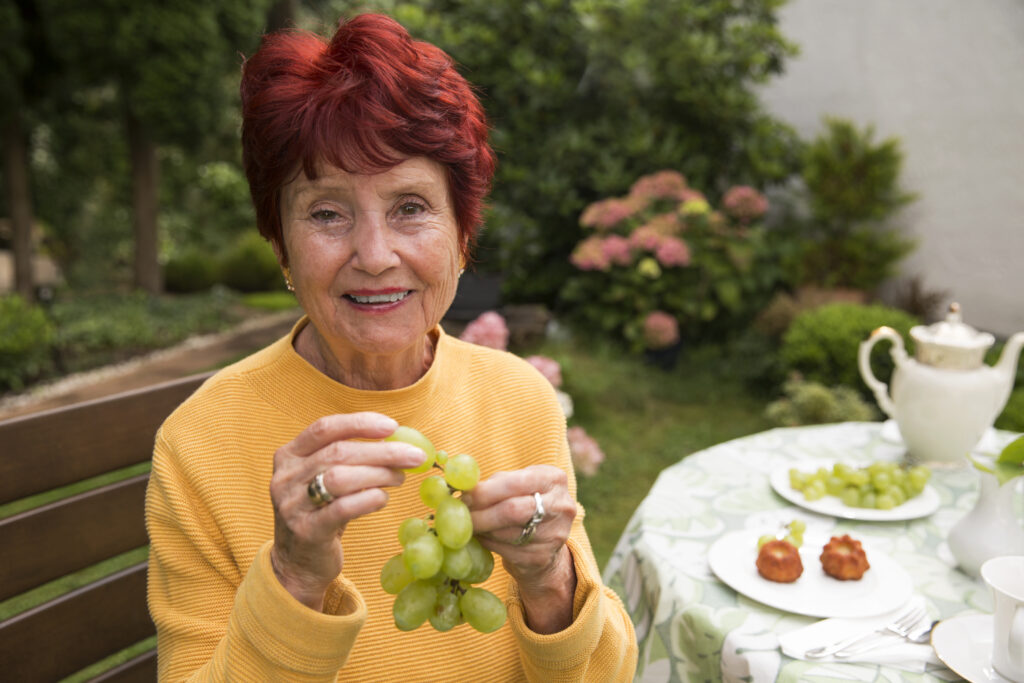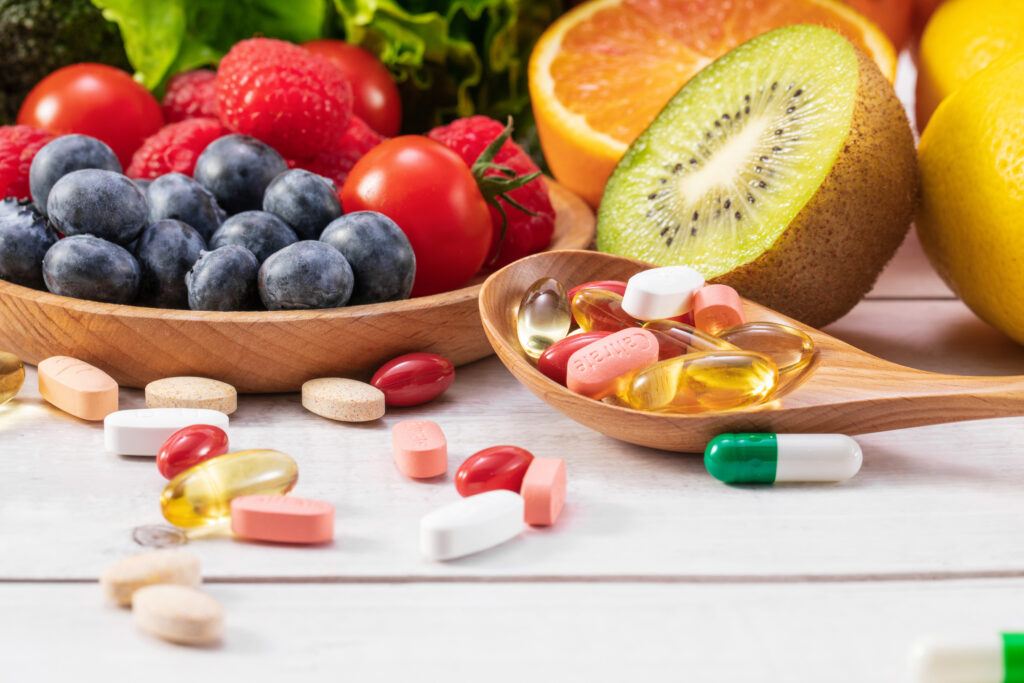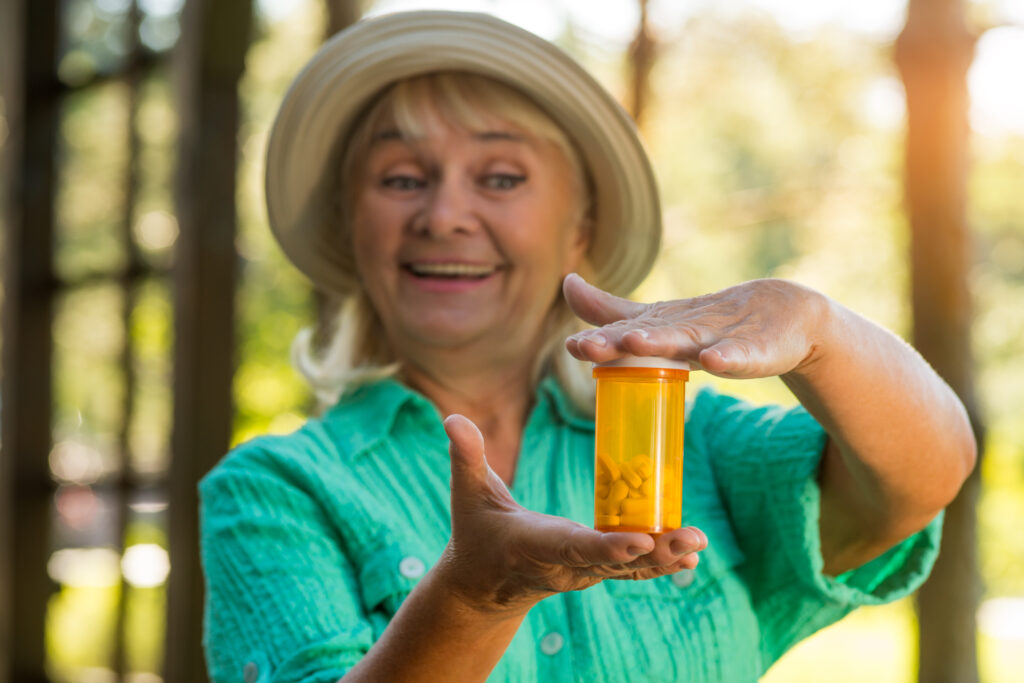For women over 50, the golden years can shine brighter with the right balance of essential vitamins and nutritional supplements. But amidst shelves lined with senior health supplements, which ones are truly necessary for women’s nutrition as they age?
Studies show that 2,000 to 4,000 IU of daily vitamin D is key for health. It’s vital for immune function and bone health in menopausal women. But does this mean the Nature Made D3 Vitamin Gummies, priced at $33, is the answer? Or is it part of a bigger puzzle that includes calcium, magnesium, and vitamin B12 – essential for aging well?
Women usually hit menopause around age 52, changing their nutritional needs. The question is not just what supplements to take, but how they work with your body. With expert advice, senior women can find the right mix of food, lifestyle, and supplements. This supports their health and well-being.
Understanding the Unique Vitamin Needs for Women Over 50
Women over 50 face special nutritional challenges. It’s vital to know their vitamin needs to help them stay healthy. Vitamins A, B12, D, and C are key for bone health and brain function.
Women over 50 need more calcium, 1,200 mg a day, to fight osteoporosis. They also need 800 IU of Vitamin D daily for strong bones and a healthy immune system. Many seniors don’t get enough Vitamin D from the sun alone.

Vitamin B12 is crucial for nerve health and making red blood cells. Women over 50 should aim for 2.4 mcg a day. But, many over 50 struggle with B12 absorption due to conditions like atrophic gastritis.
Supplements and fortified foods can help. Not all seniors have the same health needs. Personalized diets are key to good health.
Some seniors might need more Vitamin D, while others might focus on B6 or fiber. It’s important to consider individual health challenges. Learn more about healthy aging strategies.
Meeting these dietary needs is key to a good life after 50. The right diet and supplements can make a big difference. Women over 50 should get advice from doctors based on their health needs.
Navigating the World of Senior Health Supplements
As more people live longer, senior health supplements become key to staying healthy. Older bodies don’t absorb nutrients as well, making supplements important. A good supplement guide helps seniors get the nutrients they need for good health.
When choosing supplements, think about how well your body can use them and if they might affect your medicines. It’s important to pick trusted brands. Look for ones that have been checked by the USP (United States Pharmacopeia). This means they are pure and strong.

Calcium and vitamin D are crucial for strong bones, which is important for seniors. Magnesium helps keep blood pressure and bones healthy, which is key for older people. Many seniors start with MVMs (multivitamin/mineral supplements) to help their health.
But adding supplements should be a careful choice. Always talk to your doctor to make sure they fit your health needs. This helps with healthy aging and keeping a good quality of life as you get older.
Studies show that better-educated seniors with healthy habits and living in places like the western United States use MVMs more. This shows how important education and lifestyle affect using health supplements. So, having the right info through a good supplement guide is key for seniors’ health.
Essential Vitamins to Support Healthy Aging in Women
Women over 50 need to focus on essential vitamins and nutritional supplements to stay active and vibrant. These nutrients are key for healthy aging. They include Vitamin D, Vitamin C, Vitamin E, calcium, and more. These vitamins and minerals help meet the unique health needs of women.
Vitamin D and calcium are vital for strong bones. They help prevent osteoporosis, a big concern after menopause. Women over 51 should get 1,200 mg of calcium and 15-20 mcg (600-800 IU) of Vitamin D each day. This helps keep bones strong and improves calcium absorption.
Antioxidant vitamins like Vitamin C and Vitamin E protect health by fighting off free radicals. Women over 50 should aim for 75 mg of Vitamin C and 15 mg of Vitamin E daily. These vitamins boost the immune system and keep skin looking good.
Vitamin B12 is crucial for nerve function and making DNA and red blood cells. Older women need 2.4 mcg of it daily to avoid anemia. Omega-3 fatty acids, at 200-500 mg daily, are also important. They help the heart and brain stay healthy.

Adding these nutritional supplements and essential vitamins to a daily routine is crucial for women over 50. It helps not just live longer but also better. By focusing on diet and supplements, women can maintain healthy aging easily.
Top Supplements for Senior Women’s Health and Wellness
As women age, their nutritional needs change. It’s crucial to pick the right supplements to age well and stay healthy. By the senior years, some nutrients are key for good health and fighting age-related issues.
Magnesium is vital for women over 50. It helps with making proteins and controlling blood sugar. This mineral keeps energy up and supports metabolic health. You can get it from leafy greens and nuts or take supplements.
Omega-3 fatty acids are important for the brain and eyes. They help seniors keep their minds sharp and eyes healthy. You can get them from fish or supplements. Omega-3s fight inflammation and boost heart health, which is great for senior wellness.
Probiotics are key for gut health as we get older. Eating fermented foods or taking a probiotic supplement helps with digestion and nutrient absorption. This is important for aging well.
Trace minerals like selenium and zinc are also important. Selenium helps with muscle strength, and zinc is key for a strong immune system and eye health. These minerals play a big role in keeping senior women healthy and full of life.
It’s important for seniors to talk to their doctors about supplements. This ensures they get the right ones for their health needs. This way, they can age well and stay healthy.
Balancing Dietary Needs with Supplements for Optimal Health
As women get older, eating a balanced diet can be harder. This makes looking at dietary supplements important to fill in the gaps. Women’s health changes a lot, especially during pregnancy and after menopause. It’s key to know how diet and supplements work together to avoid missing out on nutrients.
Women aged 19 to 50 often lack vitamins like vitamin D, iron, and vitamin B6. During pregnancy, 18-84% of women worldwide don’t have enough vitamin D. This vitamin is key for strong bones and absorbing calcium. After menopause, many women don’t get enough calcium, magnesium, and vitamins C, D, B6, and B12. These are important for staying healthy as they age.
Adding dietary supplements to a balanced diet can really help women’s health. For example, vitamin B12 is good for making red blood cells and keeping the nervous system healthy. It’s harder for older people to absorb this vitamin. Calcium and vitamin D together help prevent bone loss and keep muscles and cells healthy.
Folate is also key. Eating foods rich in fruits and veggies with folate supplements can lower the risk of heart disease and boost cell health. It’s important to tailor supplements to your diet and health needs.
Knowing how diet and supplements work together helps women take a better approach to health. This ensures they live a fuller, healthier life as they age.
The Role of Fiber and Probiotics in Women’s Nutrition After 50
As women get older, eating a diet full of dietary fiber and probiotics is key. Fiber helps with digestion and keeps things regular, which can be hard for many women over 50. It also lowers the risk of diseases like type 2 diabetes and heart disease. Experts say women should eat at least 21 grams of fiber a day for healthy aging.
Probiotics, known as ‘friendly bacteria,’ are also vital in women’s nutrition after 50. These good bacteria keep the gut healthy, which is important for many health issues, like fighting infections and lowering inflammation. Foods like yogurt and sauerkraut are good sources of probiotics, or you can take supplements if you’re not getting enough from food.
Studies show probiotics might help make bones stronger, especially in women after menopause who are at risk of osteoporosis. They can also help with weight and body changes during menopause. This is important because menopause can lead to more belly fat, which is bad for health.
Dietary fiber and probiotics work together to help with weight control. Fiber makes you feel full, which can help you eat less. Probiotics can also make your metabolism better by improving how your body uses insulin and reducing inflammation.
Soon, new FDA rules will make it easier for people to choose the right probiotics. This will make it clearer and more trustworthy for consumers.
To stay healthy and manage age-related health issues, eating enough fiber and probiotics is key. It should be a main part of healthy aging for women over 50.
The Truth About Multivitamins for Healthy Aging
Many people over 50, especially women, turn to multivitamins for healthy aging. Half of American adults use them, making the market worth over $12 billion a year. But, research doesn’t clearly show they help prevent heart disease, cancer, or other health issues. Still, multivitamins for seniors often have more vitamin D and B12 to help with lower dietary intake.
The U.S. Preventive Services Task Force doesn’t recommend multivitamins for preventing chronic diseases. Yet, getting enough nutrients like calcium and potassium is key. Experts say eating a balanced diet is best for getting these vitamins and minerals. Women over 50 should eat lots of fruits, veggies, whole grains, and low-fat dairy.
For those unsure about diet and exercise, a guide to fitness and exercise can help. It’s important to talk to health experts about supplements. Some people might need them more than others, like those with certain health issues or limited food access. It’s crucial to focus on eating well first and get advice tailored to your health.
Looking at the latest studies, a mix of good eating habits and maybe supplements can support good health in older age. This approach helps achieve the goal of staying healthy as we age.

